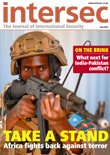Burundi: anatomy of a failed coup
Following the unsuccessful coup attempt by elements of the armed forces, John Chisholm asks how President Nkurunziza clung to power and examines the consequences for his future
While the president is away, a disgruntled general attempts to depose him after the president made a questionable political decision. It is script that has been played out many times, only this time it was in Burundi. There are usually two options for a “second act”: the president returns and the coup is suppressed or the president stays away and the coup is successful. In both cases, an orgy of arrests and bloodletting follows. Sometimes – though rarely – the coup is bloodless; Burundi already had one of those in 1987, when one military dictator was overthrown by an officer who became the next military dictator. In Burundi, you also need to add the issue of ethnic tension between Hutus and Tutsis, although everyone has been keen to downplay the role ethnicity has played this time around. So what happened, and what is next?
One man – President Nkurunziza – must carry a very large measure of responsibility for the coup, having very deliberately embarked on a course of action that was going to create opposition and potential unrest. Nkurunziza had been president since 2005, when the country emerged from a previous bout of unrest and ethnic conflict. This was not, sadly unusual in a country where 250,000 people were killed in the first 20 years of independence. He was elected by the national parliament, acting as an electoral college and, significantly, not by direct vote by the electorate itself. In 2010 he stood again, and this time the electorate had a chance to approve or disapprove. But this was adjudged to be a flawed election by outside observers, with widespread intimidation, restriction of press freedoms and so on – the usual armoury of a government determined to retain power in a country with a weak civil society and no real democratic traditions or conventions. The opposition, in response, boycotted the poll. So, in 2010, Nkurunziza was elected with 91 per cent of votes cast.
As time unfolded it became clear that Nkurunziza was a little peculiar. It is true that he was not exceptionally brutal, or believed in the power of yogic flying like some of his contemporaries, but he had claimed to survive a near-death experience before he became president, and this made him a strongly committed born-again Christian. This seems to be at the root of Africa Confidential’s claim that Nkurunziza believed God had chosen him to be leader of Burundi. Most monarchs have, by now, abandoned the concept of divine right, but Nkurunziza still seems to believe in it, and this may be the motivating factor behind his actions as president. His other religion is football; he has created a football academy and owns his own football club. In 2014 he banned jogging as, he explained, it could lead to subversion.
That he manipulated the 2010 election to ensure victory seems beyond doubt. But the constitution seemed clear: two terms were all an individual was allowed to serve. So, from the point of view of the opposition, all they had to do was cling on and he would be simply unable to stand again; this was a problem that time would solve. They had underestimated Nkurunziza. He announced that he would stand again in 2015, and the constitutional rule did not apply as he was made president the first time around by Parliament, not the people. According to him and his supporters, the constitutional rule only applied to direct elections and that meant he had one more “go” in him.
For many people, this announcement underlined the president’s absence of democratic qualifications. Burundi has a long history of coups, counter coups and post-coup bloodletting. For the opposition, this was a coup by an existing president to subvert the constitution. The result was that many simply fled in fear of what was coming: more than 100,000 are estimated to have run away to neighbouring Rwanda. Nkurunziza attempted to bolster his argument by turning to the country’s Constitutional Court to back him up. After weighty deliberation, it backed him. But this was hardly a ringing endorsement as, out of seven members, four had joined the exodus to Rwanda in fear of their lives. The three remaining judges were all supporters – it may be going too far to say placemen – of the president.
Meanwhile, people took to the streets in increasingly angry and bloody protests. Six people died in the first two days after his announcement, and more followed. The government shut down multiple radio stations and arrested a prominent civil society leader, Pierre-Claver Mbonimpa. The UN, the African Union, the European Union and the Catholic Church all expressed their concern about the deteriorating situation.
Then president Nkurunziza took the decision to leave the country on an overseas visit. It is very strange that presidents facing internal unrest do this, although it is possibly a form of escapism. But it also gives a green light to forces prepared to take far more direct action than running away or even street protests. On 13 May 2015, a Pronunciamento by radio announced the overthrow of the president by elements of the military.
Armies are a problem for countries with weak civil society structures. Often the army is the only truly organised and reliable movement in the country, and quite frequently the most structured. They also have weapons. In combination, this has often meant that power in the form of direct or indirect rule by the army has proven irresistible. Burundi has been no exception, with a revolving door of coups, counter-coups and weak democratic governments struggling to manage a country often torn apart by civil war and extreme poverty. Ethnicity, too, has played its part: the army has historically been dominated by the minority Tutsis, and has frequently used this advantage to suppress the Hutu majority. In other words, in Burundi as in much of Africa, the army has “form”.
So, when Nkurunziza left, elements of the military clearly felt that the time was ripe to get rid of him. There was an understandable “crime” he had committed, unrest was rising, people were fleeing and it looked like the president would once again be in a position to rig another election. After that, it was not too much of a stretch to think that Nkurunziza would suspend the constitution completely and declare himself president for life and dispense with inconvenient elections entirely. This was, after all, a well-trodden path.
So up stepped General Godefroid Niyombare, former head of Intelligence and recently sacked by Nkurunziza. The international airport in the capital of Bujumbura was shut down; so were the nation’s land borders. Fear and uncertainty reigned, as gunfire and explosions rang out in Bujumbura for two days after the announcement. But, by the Friday, two days after the announcement of his overthrow, Nkurunziza’s forces had held on to power and the coup attempt had failed. In a national broadcast, the president warned any more attempts to seize power by force would “bring war, poverty and other atrocities we have seen in this country”.
Niyombare was arrested, as were several of his supporters. The intention was to bring them before a military court, charged with mutiny. Meanwhile, reports persisted of loyal security forces roaming round the capital killing alleged supporters out of hand rather than risk a trial. After the election, it may be the case that Niyombare’s trial and that of his supporters gets kicked into the long grass.
On the face of it, the coup should have succeeded: the president was out of the country and therefore unable to co-ordinate a response. There had been street protests and violence, implying at least some popular hostility towards the president among the population, and it could be claimed, with some justification, that Nkurunziza had subverted the constitution, thus releasing the soldiers from their oath of loyalty.
Unfortunately for the plotters, however, they made a number of fatal errors. For one thing, the coup was led by a sacked general who had no background in commanding operational units. Indeed, Niyombare seems to have had very few forces at his disposal. Admittedly, most coups are successful with only five or ten per cent of the armed forces taking part, but these need to be concentrated and have very clear instructions. This does not seem to have been the case, with Niyombare relying on a few supporters in the Intelligence branch but little else. He also seems to have been unable to persuade the police to remain neutral – they had already chosen sides by suppressing the street protests earlier, and the fall of Nkurunziza would have placed them at risk of reprisal. The coup’s weakness is underlined by the fact that they failed to secure control of some key “coup checklist” real estate, such as the presidential palace and the state radio and TV stations. In fact, all they seemed to have successfully secured was the airport.
If the army had been committed to bringing down the president, the clear option would have been simply to refuse to intervene against the protests, and inform the police that they were on their own. This is the approach recently seen in Egypt and has generally proved successful. “The president resigned when the army withdrew its support” is a well-rehearsed headline. Instead, this seems to have been an Opera Buffa affair – amateurish and seemingly doomed to fail when set against the playbook of conducting a successful coup d’etat. No wonder the Burundi government has, not without reason, dismissed it as “a joke”.
Although on the face of it the coup attempt has made Nkurunziza more secure, it has underlined the opposition to his course of action and the instability it has caused. He seems determined to go on with his election regardless, however. But elections are expensive things, and Burundi is poverty stricken and its economy has not recovered after the last bout of unrest. Initially the European Union was going to pay for the poll. But, already alarmed by the president’s desire to run again, the EU has watched the attempted coup and the following bloodshed with alarm. The result is that Brussels has withdrawn its money. Another important ingredient in an election is at least some neutrality among the electoral officials, to provide at least a sense of impartiality. In the majority of Burundi’s 17 provinces this was to be provided by the Catholic Church, with priests acting as electoral commissioners. Now the Vatican has withdrawn its support too. In short, Burundi may end up running an election on the never-never, which has the impartiality of a Hitleresque plebiscite.
Although Nkurunziza may be satisfied with this outcome – recalling the 91 per cent of 2010 – it will not necessarily be what he wants for the purposes of international support and recognition. Burundi needs money. The alternative, of course, is China, which does not generally concern itself with internal politics. But Burundi has a predominantly agricultural economy, and has very little in the way of raw materials that the Chinese traditionally want in return for investment.
Nkurunziza may yet cut a deal with the EU once the dust has settled. But the longer-term future of Burundi is still in the balance. If an election takes place and the incumbent wins (a high likelihood in both cases) then five more years may see him able to hollow out the remaining checks and balances on his power. The result may be an “alteration” to the constitution, removing the two term limit (another likelihood) and Africa will gain yet another President for Life…
John Chisholm is intersec’s International Security Correspondent









